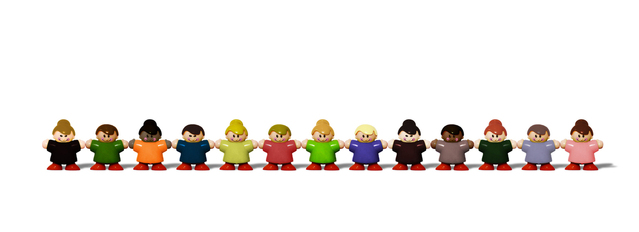It’s cute… But it’s wrong. You are used to hearing that there is no letter, I in the word team. Fine. Have it your way. But look a bit closer and you will see there is an “I” in team and it’s a big one!
In the real world when a team member is confronted with an opportunity to wow a customer who are they thinking about and what are they likely to think? Well they aren’t thinking about the boss or the customer or the other members of the team. Nope. They are thinking about themselves.
And what are they thinking? They are thinking, “Am I going to get killed for stepping out of the box?”
If you want to build an extraordinary team that will do extraordinary things you had better think about the concerns and needs of the individuals you count on to watch your back, to follow your lead, to act fearlessly even when you may not be available to offer your advice and approval of an out of the box decision.
Cultivating Tribal Knowledge
The value of individual team members grows exponentially when sharp managers are able to get individuals to work as tight knit teams.
As a group, Millennials are all about teams. They are happy followers. The trick to getting the most out of Millennials is to appeal to their love of teams and technology. The key points are:
- Millennials expect to work with the best technology tools available.
- Millennials hate being made to look or feel stupid.
- Millennials love being a part of something greater than themselves.
In those three facts lies the secret to building strong Millennial teams. Working together and sharing knowledge has the effect of raising the average IQ of the individual team members . Together Each Knows More.” Too bad team is not spelled TEKM!

Smart bosses design the work environment to take advantage of what we call “team intelligence.”
To fully leverage team intelligence it is imperative that you also recognize and promote tribal knowledge… the tips and shortcuts that are too often dangerously learned outside of formal training. High reliance on technology has blurred the distinction between technology and self whether we are referring to work responsibility or personal activity. In a recent poll 60% of Millennial workers said they would quit their jobs if their boss banned the use of social media at work. ‘Better think about that one!
Millennials want to be a part of something bigger than the individual. Given the right environment and the right blend of people Millennials naturally group themselves in informal teams. Smart leaders will take advantage of this trait and clear away obstacles that might impede the expression of what to Millennials is a rather natural tendency. Millennials come into the work place with built-in skills for collaboration.
Smart bosses take advantage of this talent for collaboration and end up looking even smarter themselves!